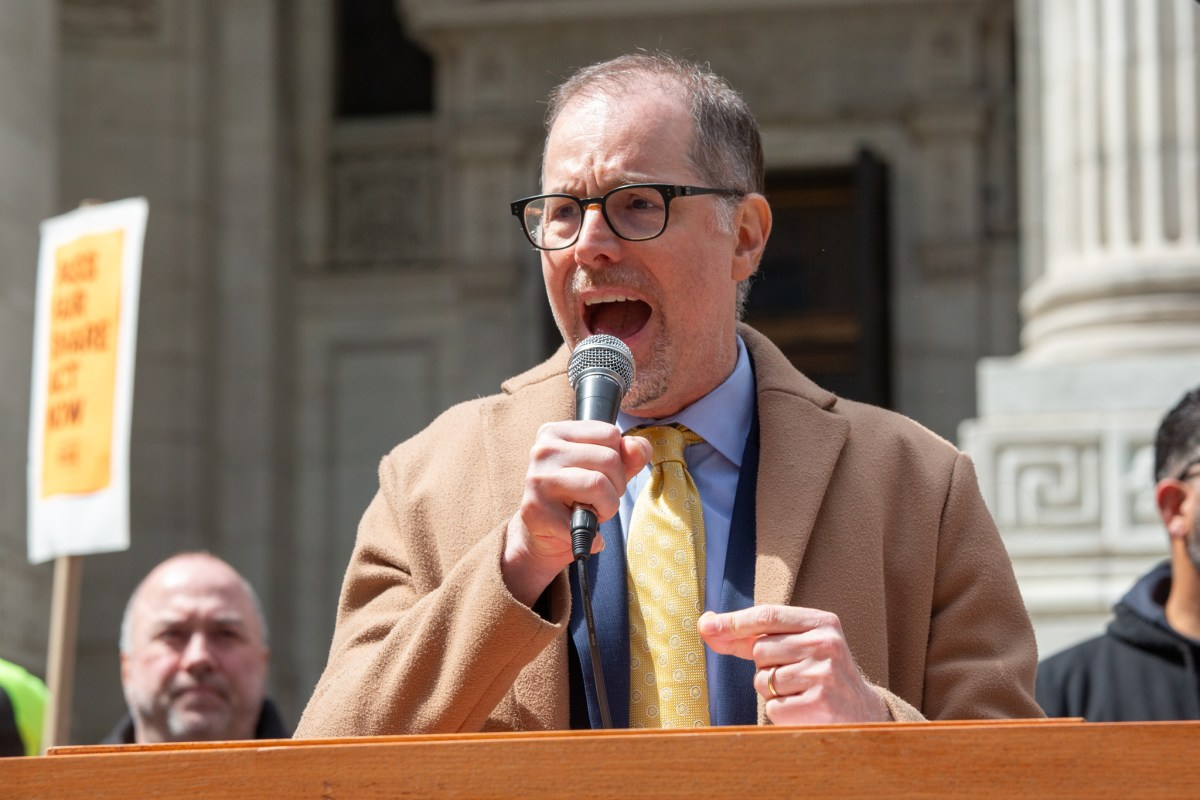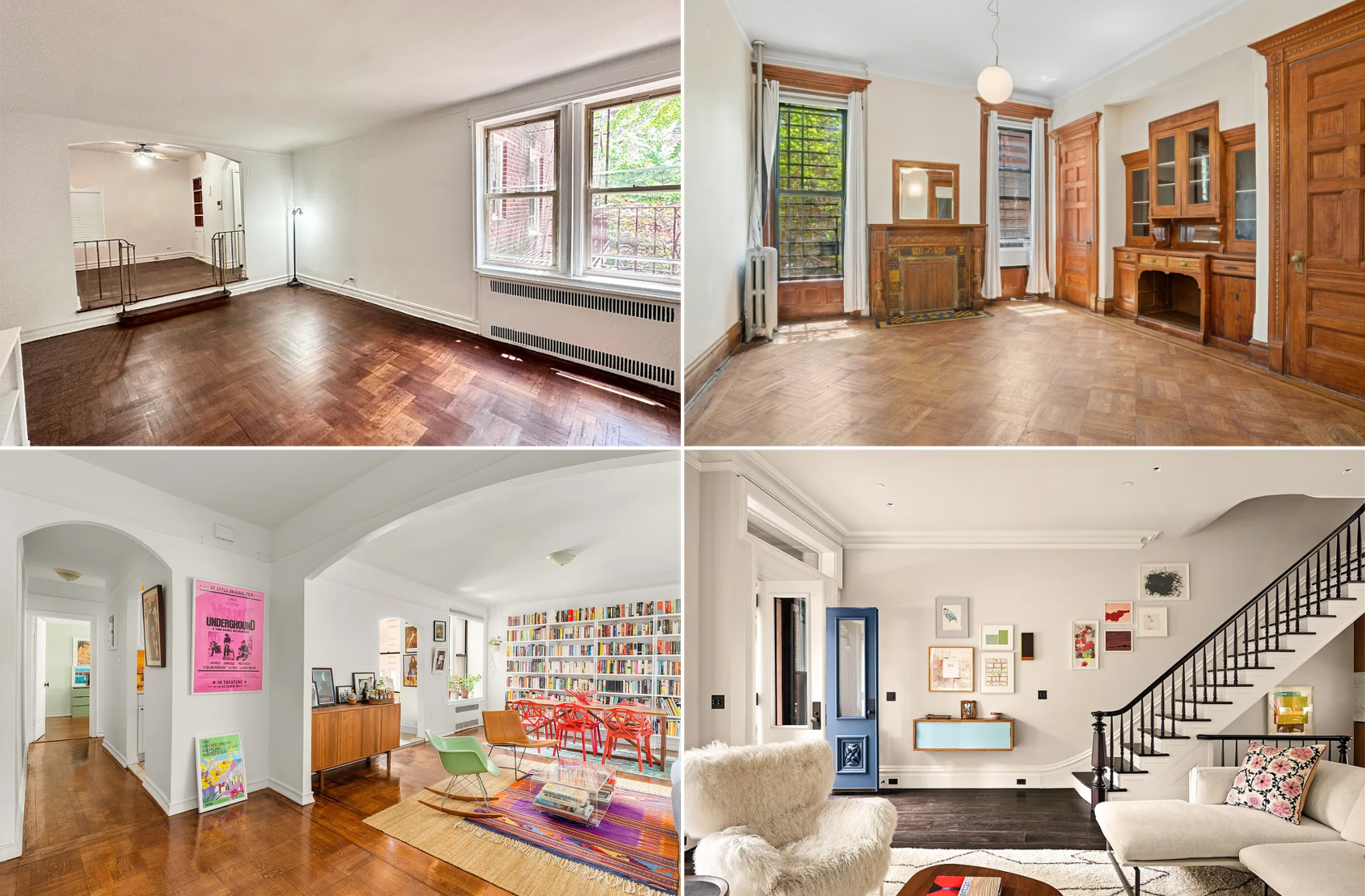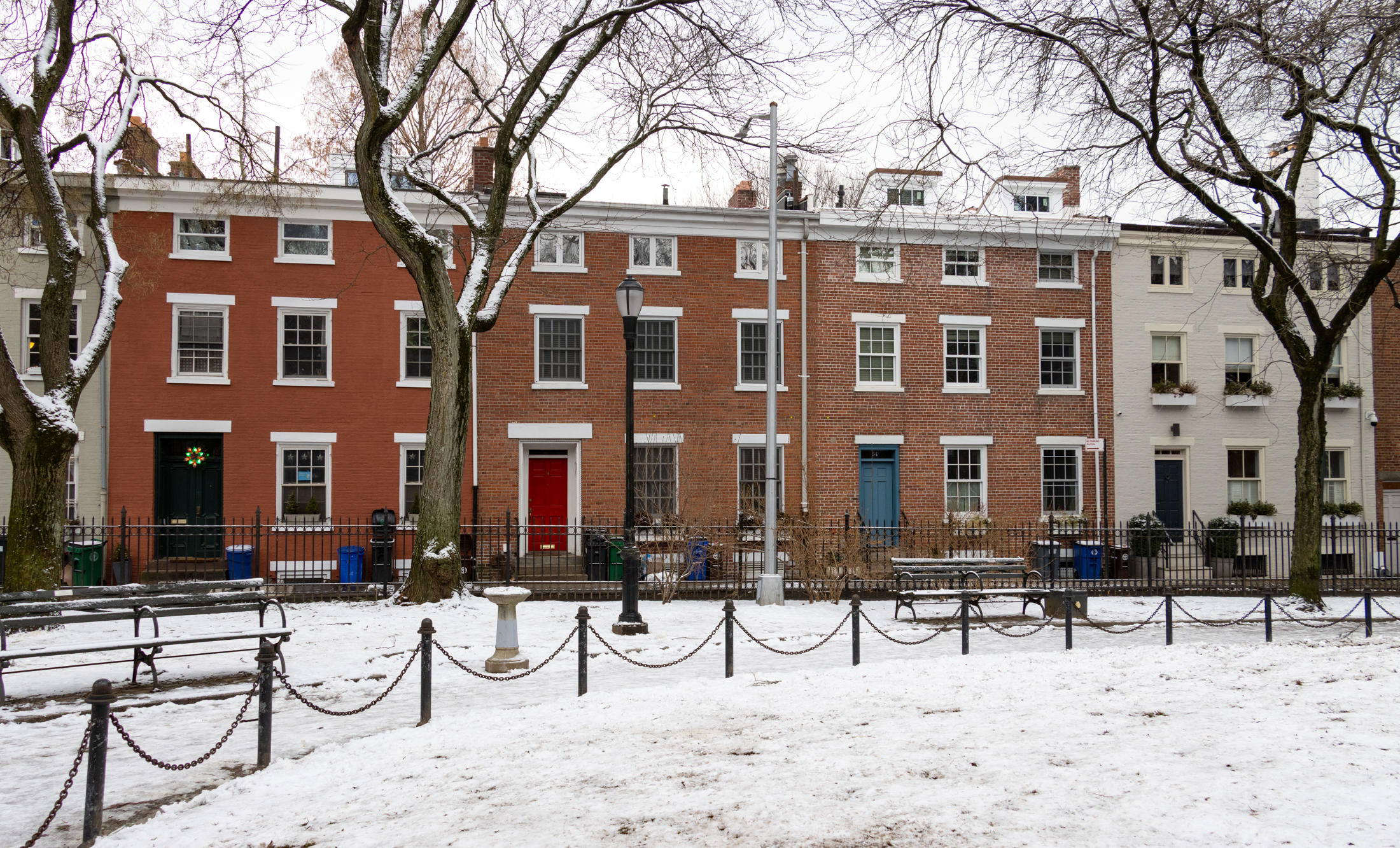Brownstone Market: Trouble on the Fringes?
This month’s issue of The Real Deal has an article about the ramifications of a cooling real estate market in Brooklyn (despite the debatability of that assertion). TRD contends that the more “farflung” nabes are the most vulnerable, pointing not only to some price reductions in spots like Bed Stuy as well as signs of…
This month’s issue of The Real Deal has an article about the ramifications of a cooling real estate market in Brooklyn (despite the debatability of that assertion). TRD contends that the more “farflung” nabes are the most vulnerable, pointing not only to some price reductions in spots like Bed Stuy as well as signs of mortgage lenders becoming more stringent about appraisals and comps. One Brown Harris Stevens broker claims that houses in Bed Stuy that may have been selling for for around $800,000 a few months ago now have asking prices closer to $600,000. Maybe, but frankly we haven’t seen many examples of such a dramatic shift. Sure people are being more deliberate in the search and may be less likely to plunk down a million bucks for a wreck in a less proven area, but 25% decreases are the exception not the rule as far as we’re aware.
Doubts on Fringe of B’kln [The Real Deal]





can we just admit that all of our estimates of the size & shape of “the bubble” are filtered wildly through our personal neuroses??
Exactly. I rent a -very- large (~900sqft) 1BR for $2000/mo in midtown. Nice, clean building, reliable super, good neighbors, close to transportation, etc etc…
In order to purchase an apartment like that, I’d need to spend close to $700k. At 20% down on a 30 year fixed at 5.75, that’s $3,268.00/mo PLUS MAINTENANCE (probably in the range of 700-1000/mo)
So for the pleasure of owning, I spend 2x my cost for rent — and this ignores closing/lawyer costs! I’d rather bank that $2k/mo and wait for the RE market to tank, which inevitably it will… as we see about $3tril in mortgage resets in ’07/late ’06.
People who think that this kind of RE market is different in any way from ’89 are right — it’s worse. Exotic mortgages of the type that allowed people making $150k/yr combined to somehow shoehorn themselves into a property costing close to $1mil didn’t exist then.
They do now, and those people who’re already living at the edge of their means to afford these skyrocketing properties will be faced with 50-100% increase in monthly carrying costs when their ARM resets.
ItsAWrap, can you please provide similar facts/figures for the rental market. I’m sure that it would suggest the point that rents are about to hop, skip and jump.
There is indeed an inverse correlation between rent and sales in a normal market. The late 80’s, early to mid 90’s was a bit aberrant to the extent that crime rate was much higher than it is today. People weren’t as hell-bent on moving to the city in droves as they are now.
So…if migration patterns continue and the population continues to grow…it makes perfect sense that RENTS WILL INCREASE.
Check out the following links:
http://tinyurl.com/mckux
and
http://www.nytimes.com/2006/02/19/nyregion/19population.html
That renting vs. owning comparison works when you pay 299 for something. But what happens if you can rent something for 3K a month but to buy that property would cost a million or more? That’s more common nowadays and certainly makes renting seem more attractive than buying.
Reading over the posts, I see a lot of speculation about housing prices. Those who think’it’s different this time’ and price wont fall much are ignoring the facts of whats really going on in the NYC housing market.
1. Year over Year Sales volumes are declining.
2. Year over Year Prices are flat to marginally higher.
3. Length of time on the market in increasing.
4. Inventory on hand is increasing.
5. # of multiple bids @ or above asking price are declining.
Thess 5 things are facts, not conjecture. They are actual indicators of a slowing market. Time will show that the summer of ’05 was the top.
1:28.
How much have you paid to renovate? How much has that renovation depreciated? How quickly are your maintenance expenses rising? How’s the building’s facade? Roof? Bricks? Boiler? Elevator? Have you figured out the rate of physical depreciation? Are your taxes rising? What were your closing costs? What would your selling costs be if you sold? How quickly does your principal amortize?
Your estimated 18-month appreciation of $131K, may not be as much as you think and your expenses may not be as low as you think.
Re: renting vs. owning,
When I rented, my housing costs were $16,200 per year ($1350 x 12). Now that I own a co-op, my expenses are $13,400 per year ($2200 x 12 minus $13,000 in tax returns). Plus, if I decided to, I could sell, whereas if I were renting, I’d have absolutely nothing from all of the money that I paid out in housing costs. Prior to buying, I estimate that I paid 70K in rent – all of which is gone, forever.
I paid 299K for the apartment 18 months ago. Last summer, an apt. in my building sold for 450K (same configuration as mine, with about 20K of renovations).
Seems like a no brainer to me…
I certainly wasnt trying to mischaracterize what you said – I just dont think reposting your whole quote was nec to articulate what I was responding too.
You say that RE and stocks are different and they are, but both are influenced by psycology (and often in the same way) so the analogy is very useful. And I note that historically tangible assets (like houses, gold, tulip bulbs, art etc…) have been just as suseptible to bubbles as intangible assets.
No you cant day trade houses but bubbles arent simply caused by flippers- and the fact that people dont have to sell “instantly” also means that people dont have to buy “instantly” and thus in the marketplace where buyers meet sellers the lack of “day trading” is somewhat irrelevant.
As for “hunkering down”; that is based on the assumption that housing prices always come back reasonably quickly which is an easy assumption to live with in a rising market, but when prices are falling and your house is your biggest asset it is much more difficult to supress the urge to sell.
There is not an inverse relationship between rent and sale prices (yes that did occur recently in Manhattan but it is far from a universal metric) and your Dumbo/Bushwick example sort of proves this on a small scale. To use a historical example in Manhattan in early 90’s the sales market was horrific (Banks wouldnt even lend on studios) and the rental market was also bad – why? cause all those people that couldnt afford to sell their aparmtnets (underwater mortgages) were renting them out instead.
I am certainly not predicting a crash tomorrow, what I am saying is that one day prices WILL FALL (guarantee) and that today the relationship between incomes and prices (factoring interest rates) seems to me, to be very out of wack, so that I believe that it is very possible that “one day” might be today. As a previous poster said – we will see…
stuy blkbuttrflie: thanks for the info! I’m looking to rent initially until I get my bearings and can afford to buy, and this gives me a good starting point…